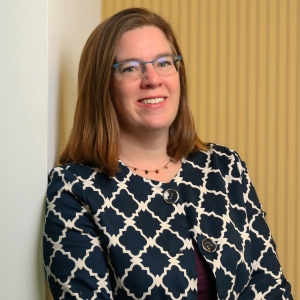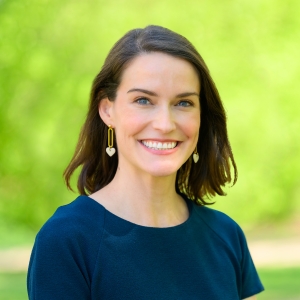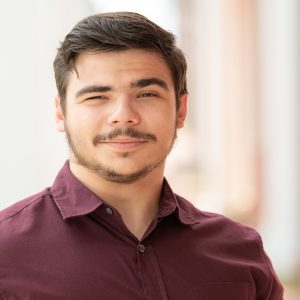Medieval and Renaissance Studies
- Degree Type Bachelor of Arts
- Department Interdisciplinary
- Academic Division The College
- Offerings Major Minor


The Medieval and Renaissance Studies (MRST) program offers both a major and a minor. This interdisciplinary program allows students to complete work in a variety of subjects and fields, including art history, religion, literature, history, music, philosophy and Classics, while gaining an in-depth knowledge of Medieval and Renaissance culture.
Medieval and Renaissance Studies
Medieval and Renaissance Studies offers students a chance to experience interdisciplinary inquiry at its best. Cultures do not follow strict divisions between fields and neither does our program. Students will get a 360-degree view of medieval and Renaissance culture, culminating in an independent capstone or thesis on a topic of the student’s choice. Students work closely with faculty mentors in a variety of departments, with study abroad and research opportunities strongly encouraged. Students will gain skills in cultural analysis, research and writing that will serve them in multiple career paths.
MRST prides itself on its strong core faculty drawn from across the College. With the help of our students, MRST faculty conduct exciting international research projects, including several prominent digital humanities projects supported by competitive national funding. Our students often study abroad, and many choose to complete honors theses on a related topic.
Opportunities
We offer paper prizes for the best work in introductory and advanced coursework. Our students often study abroad and conduct summer research with faculty. They are often candidates, finalists and winners of nationally competitive fellowships.
Outcomes
MRST students go on to careers in law, academics, medicine, teaching, museum curatorship, government service and business. The study of medieval and Renaissance culture is a versatile humanities major that will prepare students for a variety of careers.
News

Benefiel is among a host of experts that reveal the truths about the social and economic makeup of the city before the eruption of Mount Vesuvius.

Mikki Brock wrote her second book and recently answered questions on her specialty ‚Äď witches, witchcraft and witch hunts.

Mikki Brock will perform research leading to a new book at the Wellesley College-based academic center this year.

After graduation, Donahue is working as a financial analyst at Amazon and pursuing her CPA.

Holly Pickett’s book explores the stories of several serial converts in early modern England.

‚ÄėWhite before whiteness in the late Middle Ages‚Äô will launch via Zoom on Jan. 25 from 5-6:30 p.m.

Benefiel‚Äôs talk ‚ÄúUncovering the mysteries of Pompeii‚ÄĚ will be held on Nov. 10.

McMaster has been awarded a Fulbright research grant to Italy to complete a hybrid art history and computer science project.

Lauren Hoaglund ’22 has parlayed her passion for medieval and Renaissance history, literature, classics and theater into a busy but rewarding four years at W&L.

Kathryn Muensterman ’22 has won a $34,000 Beinecke Scholarship to help fund her graduate studies.

Melissa Yorio ’21 has received support from many corners during her college career, so when the pandemic broke out, she found a way to give back within her hometown community.

Christopher McCrackin ’20 has won a $34,000 Beinecke Scholarship to help fund his graduate studies.
Sample Courses
At W&L, we believe education and experience go hand-in-hand. You’ll be encouraged to dive in, explore and discover connections that will broaden your perspective.
ARTH 383
Digital Florence
This course invites students to participate in and contribute to the Digital Humanities project ‚ÄúFlorence As It Was: The Digital Reconstruction of a Medieval City.‚ÄĚ We consider how the built environment of Florence influenced ‚ÄĒ and was in turn influenced by ‚ÄĒ the culture, society, art and history of the city. Students learn to translate historical, scholarly analysis into visually accessible formats, and collaborate on the ‚ÄúFlorence As It Was‚ÄĚ project, contributing to the digital mapping, data visualization, and virtual-reality reconstruction of medieval Florence.
MRST 110A
Dreaming in the Middle Ages
An introduction to the interdisciplinary study of the medieval and Renaissance periods through the study of a particular topic. Recent studies: The Crusades, Monasticism, Chivalry, Elizabethan England, the Birth of Italian Literature, Pilgrimage, and European Encounters with Islam.
ARTH 253
Medieval Art in Southern Europe
Examination of the art and culture of Italy and Greece from the rise of Christianity to the first appearance of bubonic plague in 1348. Topics include early Christian art and architecture; Byzantine imagery in Ravenna and Constantinople during the Age of Justinian; iconoclasm; mosaics in Greece, Venice and Sicily; sculpture in Pisa; and the development of panel and fresco painting in Rome, Florence, Siena and Assisi.
ARTH 354
The Early Renaissance in Italy
Examination of the intellectual, cultural and artistic movements dominant in Florence between ca. 1400 and ca. 1440. Images and structures produced by Ghiberti, Brunelleschi, Masaccio, Donatello and Fra Angelico are considered within the context of Florentine social traditions and political events.
CLAS 210
Classical Mythology
An introduction to the study of Greek mythology, with an emphasis on the primary sources. The myths are presented in their historical, religious and political contexts. The course also includes an introduction to several major theories of myth, and uses comparative materials drawn from contemporary society and media.
HIST 212
Crime & Punishment
Crime and Punishment in Medieval and Early Modern Europe is an exploration of the history of crime, law enforcement, and punishment during the period of 1200-1650. Our central project is to investigate the deep problems of writing history from a paucity of very biased sources: the criminal records of a world of the past. We begin with the central historical questions: What counted as criminal when, who defined it, and with what authority? What could count as proof of guilt? What constituted acceptable punishment (torture, imprisonment, spectacle executions, penance) and how did this change over time? What role did politics, religion, class, gender or marginal status play?
Meet the Faculty
At W&L, students enjoy small classes and close relationships with professors who educate and nurture.


Wan-Chuan Kao
Associate Professor of English; Head of the Medieval and Renaissance Studies Program
- P: 540-458-8345
- E: kaow@wlu.edu
Professor Kao’s teaching and research interests include medieval literature, especially Chaucer; whiteness studies; critical theory; race and ethnicity; gender and sexuality; queer studies; hotel theory; affect; and cute studies.


Matthew Bailey
Professor of Romance Languages
- P: 540-458-8160
- E: baileym@wlu.edu
Bailey teaches Spanish language, culture and literature. His research interests include medieval Spanish literature and culture, and more specifically, medieval epic narrative.


Rebecca Benefiel
Abigail Grigsby Urquhart Professor of Classics
Benefiel teaches classics and Latin courses such as Pompeii, Classics in a Digital Age, Roman Religion, and The Poetry of Ovid. Her research focuses on Pompeii, Latin epigraphy, and Roman social and cultural history.


George Bent
Sidney Gause Childress Professor in the Arts
- P: 540-458-8863
- E: bentg@wlu.edu
Bent teaches courses on medieval art, Renaissance art and gothic art. He has researched Italian art extensively and recently taught a course called Digital Florence in which students helped to digitally reconstruct the city.


Michelle D. (Mikki) Brock
Professor of History
- P: 540-458-8780
- E: brockm@wlu.edu
Brock teaches courses on British and Atlantic history, the Reformation, witchcraft and the devil, and the history of poverty. Her research focuses on the supernatural and religious beliefs and identities in early modern Scotland.


Roger Crockett
Professor of German
Crockett teaches courses on German literature and business.


Genelle Gertz
Associate Dean of Strategic Initiatives and Thomas H. Broadus Professor of English
- P: 540-458-8763
- E: gertzg@wlu.edu
Gertz teaches courses on Milton, the Tudors and the Bible. She is currently working on methods of social network analysis as they apply to our understanding of the rise and fall of women mystics in English literary history.


Jemma Alix Levy
Associate Professor of Theater
- P: 540-458-8005
- E: levyj@wlu.edu
Levy teaches courses on acting, directing, Shakespeare and theater history. She is a professional director with critically-acclaimed national and international credits, and for 10 years ran Muse of Fire Theatre Company.


Stephen P. McCormick
Medieval and Renaissance Studies; Associate Professor of French and Italian
McCormick heads W&L’s Medieval and Renaissance Studies Program and teaches courses on French language and culture. He also supervises the French study abroad program. He has researched old French epic and medieval/early modern Italian cartography.


Holly Pickett
Department Head and Associate Professor of English
- P: 540-458-8078
- E: picketth@wlu.edu
Pickett teaches courses on Shakespeare, early modern drama and contemporary drama. Her research interests include religion and drama, history of the senses, and early modern religious identities and controversies.


Debra Prager
Department Head, Associate Professor of German
- P: 540-458-8830
- E: pragerd@wlu.edu
Prager teaches courses in German language and literature.


Domnica Radulescu
Edwin A. Morris Professor of Comparative Literature
Radulescu teaches upper-level French and Francophone literature, theater, and the representations of women, gender, and sexuality in literature. She researches feminist theater and is an award-winning novelist/playwright.


Melissa Vise
Associate Professor of History, Head of the Italian Studies Faculty Cohort
On Leave 2024-2025
- P: 540-458-8249
- E: mvise@wlu.edu
Professor Vise teaches courses on Medieval European history, violence, crime and punishment, law, and religion and culture. Her research interests are Medieval European intellectual, cultural, and religious history with special attention to the Italian peninsula.












